- Home
- Patrick Logan
Skeleton King Page 2
Skeleton King Read online
Page 2
She didn’t need to say the girl or the child; her was implicit enough.
The man looked up, his dark eyes hard. He had a thin mustache on his black face, and thick grooves that lined his cheeks—not just around his mouth, but there was an intricate network of spider webs by the corners of his eyes as well.
When he spoke, his voice was exactly as she expected: gravelly and distinct, like James Earl Jones with a cold.
“Still upstairs, working their way down.”
Upstairs. Why the fuck are they upstairs when the family is down here?
“What are they doing up there?”
“Searching the parents’ room.”
Kendra made a face, but decided against challenging this approach.
It was better to be diplomatic. Instead, she hooked a thumb over her shoulder.
“The officer—”
The man with the mustache waved her off.
“Frank’s a little sensitive, is all. Hasn’t been at it for as long as myself.”
Or me, Kendra thought, her eyes darting to the girl’s pale, dead fingers.
While she doubted she had been around for nearly as long as the black man now crouched by the pile of bodies—late fifties, early sixties, she guessed—as an agent, she only saw the worst. Twelve years as an agent equated to at least double that as a detective, and maybe triple as a uniformed officer.
The man rose out of his crouch and took a wide berth around the pile of bodies, making an effort to avoid stepping in the trail of blood.
Seeing him standing upright, she realized he was taller than she had initially thought, easily dwarfing her five-foot-eight frame. Tall and thin, and probably a smoker, too—the thick bags suggested he was either a smoker or an asthmatic.
She bet the former.
The man held out his hand.
“Detective Clark Tennison,” he said, then added something that was completely unnecessary given the circumstances. “Homicide.”
As an FBI agent that traveled from state to state, and occasionally collaborated internationally, Kendra had met officers, detectives, captains, military personnel, and other agents from all walks of life. While occasionally she met a sergeant who was hell-bent on becoming captain and needed to pad his resume with just one more high-profile murder to notch his often considerable belt with, which came with the appropriate friction, their relationships weren’t like in the TV shows.
The FBI and the local PD or detectives didn’t hate each other. In fact, PD often welcomed Agent Wilson and Agent Cherry, as their arrival meant that some of the load was off of them.
As was the pressure.
Kendra grabbed the man’s hand and shook it.
“FBI Agent Kendra Wilson,” she said, pressing her lips together, forming a tight line across her pale face.
Detective Tennison nodded and turned back to the stacked corpses, waiting for Kendra to speak again.
She didn’t immediately oblige. Instead, she observed. Kendra could tell a lot by what an officer or detective said or didn’t say while staring at corpses.
If they went with the clichéd, ‘sad, isn’t it?’ or ‘such a shame, so young…’ then she knew that they thought deep down they thought they were better than her, smarter, more experienced, more masculine, which was tied with the condescension they didn’t even realize they had laced their words with.
Of course it was fucking sad, especially with children—no need to say it to make it true.
If instead they went with, ‘ever seen anything like this?’ then Kendra knew that they were new to this game, that they were eager—too eager—to accept whatever profile she came up with.
If, instead, they offered a suggestion, or, like Tennison, said nothing at all, then she knew that they were going to get along just fine… and that they might even be of use when it came to finding out the answers she so desperately sought.
“Murder/suicide, most likely,” Clark said finally, a hint of solemnity on his tongue. He raised his finger and traced a phantom line from the blood at the front of the house to the bodies. “Looks like the woman was cut pretty bad and tried to make a run for it.”
Kendra nodded in agreement.
Most of the crimes that she investigated, no matter how heinous, how truly horrific, they often followed Occam’s Razor: the simplest solution is usually the correct solution.
And this screamed murder/suicide.
But the bodies… stacked like that, with only the girl’s hand outstretched…
“Some strange facts, though,” Clark continued. She followed his finger to the countertop.
Seeing nothing out of the ordinary, she said, “What is it?”
The man tilted his head.
“The milk,” he said. “It’s still cold.”
Kendra’s mind continued to flip through possible scenarios, trying to work out what happened here.
Wife comes downstairs, maybe can’t sleep, husband having bad dreams. Pours herself a glass of milk. Hears some shouting and worried about her daughter, heads upstairs to—to what? Is the girl dead already? No, probably not. Not yet. Wifey tries to keep husband at bay, but gets stabbed—
Kendra tilted her head and then squatted on her haunches.
She thought she could make out a ragged knife wound on the woman’s side, just around her liver.
It was hard to tell, what with the husband’s blood leaking all over her, but the wound looked darker than the rest of the blood.
—she grabs her child, maybe, and runs toward the front door, but then she slips or has bled too much and drops the child—
But why is the child buried beneath them? Why stack the bodies so… so protectively?
“And then there’s the note,”
Kendra raised a manicured eyebrow.
“Note?”
Detective Tennison was pointing again, but this time his thin digit was aimed at the fridge.
Written in a blood-smeared scrawl that stood out on the white background like paintball splatter were four words: You can’t have her.
And there was one of the answers that Agent Kendra Wilson was looking for.
CHAPTER 2
Not much got to Kendra these days, but this did.
It wasn’t the bodies, but the balloons of all things that did it.
They found balloons in the closet, four of them, all pink, and several gifts that were wrapped and ready to go.
It was the little girl’s birthday, and judging by the number of balloons, she would have been four this morning.
Fuck.
Kendra shook his head in distaste, disapproval, disgust. Then she squatted and flipped over the tags on the gifts.
For Steph, Love Mom + Dad.
She let go of the tag and got to her feet, turning to face Detective Tennison.
The lines on his face had seemed to deepen over the course of the twenty or thirty minutes since Kendra had arrived, and now those around his mouth were so deep that she thought if they got any deeper she would be able to see his soul peeking through.
If she believed in souls, which, of course, she didn’t—she couldn’t. Not after horrific events such as this.
Not after Christine, not after spending all those years in the church.
“Fucking shame,” Tennison muttered. Unlike before, this commentary was acceptable to Kendra, what with their rapport already established.
And it was fitting, as clichéd as it was.
Kendra nodded, and pushed a lock of dark hair from her face, tucking it back into the tight bun at the top of her head.
“Yeah,” she admitted. She indicated the gifts with a head nod. “Male writing on the card.”
Tennison acknowledged the comment, then turned back to the kitchen. Both the medical examiner and coroner had since arrived and had started the unenviable task of unstacking the three corpses.
“The father?” Tennison asked.
Again Kendra nodded, even though things weren’t quite adding up. Still, it most definitely felt l
ike a murder/suicide, with the father being the perpetrator.
It fit the pattern, sure, the statistics.
But it didn’t add up.
Why wrap gifts and tuck them in the closet, only to kill your family and yourself the next day? What drives a man to snap so quickly?
Her throat was dry, and she swallowed hard.
Doesn’t make sense.
“You got a file on the husband?”
Tennison snapped his fingers at a uniformed officer, the one that had tried his best on the stoop not to vomit. Judging by his still pale complexion, Kendra thought he had lost that battle. The man swiveled, and when he saw that it was Detective Tennison who had summoned him, he hurried over.
“You have the file?”
The officer nodded and went back to the counter to retrieve a thin manila envelope, which he promptly handed to the detective.
Tennison opened the file and, clearly familiar with the notes inside, immediately began to read as Kendra watched the coroner and ME continue to work on the bodies.
“Roger and Miriam Black, both thirty-eight years old. Stephanie Black is the little girl.” He cleared his throat. “Would have been four today.”
The coroner had managed to roll Roger Black’s corpse off of his wife’s, affording Kendra a better view of the bloody carnage beneath. It was as she had first expected: Miriam had indeed been stabbed in the liver, which fit with Kendra’s narrative, despite the lingering oddities that pecked at her mind. Still, it was unlikely that the gash in her side had caused her death. Her neck, like her husband’s, had been sliced ragged, but there was far less blood from her wound compared to Roger’s, suggesting that it had been inflicted after she had nearly bled out from her liver.
“Any history of psychotic breaks? Schizophrenia? Psychotropic drug use?”
The obvious things.
“Nuh-uh,” Tennison replied. “File only starts about four years ago, when the family moved here from South Carolina. They look just like normal, working class folk. I mean, something could have happened before they moved, but…” He let the sentence trail off, which was just as well.
In Kendra’s experience, only in about half the cases was there a precipitating event that led to the extreme violence committed by husbands and fathers. But even in these seemingly spontaneous outbursts, she was still able to see telltale signs that most others would overlook. Most of the detectives that she worked with thought that if there weren’t beer cans scattered about, paint peeling on the walls, dirty laundry piled all over the place, that the family was normal. And while sometimes she did come across cases that fit this stereotypical mold, they were usually open and shut.
The worst crimes often happened in houses that were meticulously clean. Like toothbrush and bleach on bathroom grout clean. This was usually a sign that the family had been so terrified of the patriarch that they had done everything they could to make sure that he didn’t fly off the handle.
But this place, the Black home, was neither. It wasn’t particularly clean or particularly dirty. It was just normal.
Normal, except for the corpses in the kitchen, the bloody scrawl on the fridge, and a closet filled with presents and balloons.
And the cold glass of milk on the counter.
You can’t have her.
Kendra shuddered, and then immediately narrowed her eyes. Her unusually visceral reaction to the scene, no matter how grisly, was unnerving.
Get it together, Kendra.
“Get one of the local uniforms to see if they can dig up info about before Stephanie Black was born—about before the family moved here. You know, focus on psych reports, domestic abuse, the works,” she ordered.
Tennison closed the folder and turned to face her. Kendra kept her eyes locked on the ME, who had finally gotten around to removing Miriam’s body from atop her daughter.
Take your damn time, why don’t you.
“Sure. Think they’ll find anything?”
Fifty percent of the time, Kendra found some hints from a past event.
But not with gifts wrapped in the closet.
She shook her head.
“No, they won’t find anything. But have them look anyway.”
CHAPTER 3
“Agent Kendra Wilson, number oh-oh-seven-eight-one-dash-nine,” Kendra said, then waited for the operator to punch in the code to confirm her identity.
A moment later, a woman responded in a flat voice.
“Okay, Kendra. I’m patching you through to Director Ames now.”
The phone clicked, and then started ringing again. While she waited for the director to pick up, her mind began to wander, imagining little Steph Black running from her room, heading downstairs before her parents were awake. She tried to imagine the glee on Steph’s face when she rushed to the closet, pulling it wide, giggling at the sight of the balloons and gifts that she had heard Mommy and Daddy put in there when they thought she was sleeping in her bed.
Kendra imagined an ice cream cake, smiling faces, laughter.
She couldn’t remember any of her own parties, what with being brought up in the church from such a young age, but she thought this was how things would have gone.
How these things went.
But now… this.
Her eyes flicked to the blood-soaked knife on the linoleum floor.
Steph’s birthday hadn’t been without smiles, but they weren’t the happy kind. They were ragged, torn smiles that went from ear to ear.
Someone picked up the phone, drawing Kendra out of her reverie.
“Director Ames.”
The voice was strong, affirmative.
“Kendra here… just wanted to give you an update.”
“Go on.”
“Three dead, murder weapon left by the bodies, which were stacked on top of one another: daughter, mother, then father on top. Kill wounds were all the same: throat slitting, although the female had also been stabbed in the liver. It was… it was the daughter’s fourth birthday today.”
“Jesus,” Director Ames interjected. “Murder/suicide?”
“Still waiting for tox, but there doesn’t appear to be any past history of psychosis or schizoid breaks. There was a glass of milk on the counter, not quite room temperature, and a bloody message on the fridge: You can’t have—”
“Wait, back up, Kendra. Milk? Did you say milk on the counter?”
Kendra’s eyes narrowed, and she focused in on the glass that was still resting on the counter, waiting to be processed.
This is what he homes in on?
“Yes,” she answered, and then offered, simply because she didn’t know what else to say, “tall glass, looks untouched—still cold.”
“Any milk in the fridge? A carton somewhere? Garbage?” The director’s voice was more animated now, a change that only meant one thing to Kendra: the director was linking this case to another.
But there was a problem with that: murder/suicides were not ‘connectable.’
“One sec,” she said, then brought the phone away from her ear and put a hand over it to mute it. “You there.”
A uniformed officer who was snapping photographs of the bloody message on the fridge turned.
“Me?”
Kendra didn’t answer his query, and instead immediately spat an order.
“Is there milk in the fridge?”
The man made a face, and his eyes darted to his colleague standing beside him. When neither man immediately set to action, Kendra’s eyes narrowed.
“Check the fridge,” she instructed. Although the confused look remained plastered on the police officer’s face, her harsh tone finally elicited the desired reaction.
With one gloved hand, careful not to touch the bloody script, he pulled the fridge open. She waited as he inspected the items that were hidden from her line of sight by the open door.
“No, don’t see any…”
“You sure?”
The man put his hand in the fridge and began moving items around.
<
br /> “No, no milk here.”
Strange…
Kendra turned to the other uniformed officer.
“Check the garbage behind you?”
The man pressed his lips together in a frown.
Not the time to be obstinate, you prick. Not with a four-year-old girl dead on her birthday.
“Check the garbage behind you for a bag or box of milk.” When the man again didn’t immediately react, she continued. “If I have to walk over there and check for myself, you are going to be demoted to a fucking meter maid for the rest of your life.”
So much for playing nice together.
Kendra clenched her jaw, trying to control her temper.
Where is Brett? He usually deals with any uniforms who think that they have bigger dicks than me.
But this time there was no need for Brett. Her aggressive tone and threat worked, and the man turned, offering a perfunctory glance into the open garbage can behind him.
“No, no milk,” he said sourly.
Kendra turned her back to the two men and brought the phone up to her ear.
“Director Ames?”
“Yeah?”
“No milk in the fridge or the trash. I’ll have the guys check the garbage pails outside.” She pulled the phone away again and hollered, “Anyone know what day is garbage day around here?”
The officer who had searched the fridge answered.
“Tuesday.”
Tuesday… and it was Friday now.
She turned back to her cell phone.
“If it’s there, they’ll find it. Can I ask why? Why are you interested in the milk?”
“I’ll get back to you on that. Keep looking. Brett will be joining you within a day or two.”
Brett’s coming? was the first thought that entered her head. She recalled the director telling her that Agent Cherry was on another case. Her second thought was: A day or two?
Kendra took a deep breath. She hadn’t wanted to stay in this town any longer than she had to. Besides, the case was shaping up to be fairly typical; outside of a few minor quirks, it seemed a fairly cut-and-dry murder/suicide, which didn’t require FBI involvement.
“But—”
“Stay put, Kendra. There may be more to this than first glance. Get the local PD to search the trash for the milk container, and get them to look into the family’s past. Agent Cherry will bring more information and further instructions. Until then, find out what you can from the ME and coroner. And Kendra?”

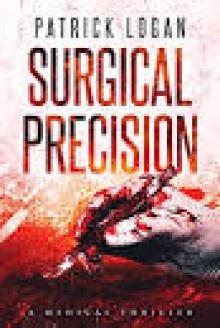 Surgical Precision
Surgical Precision Detective Damien Drake series Box Set 1
Detective Damien Drake series Box Set 1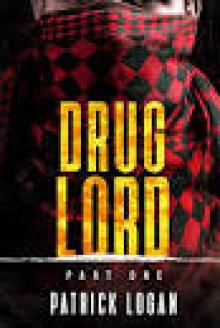 Drug Lord- Part I
Drug Lord- Part I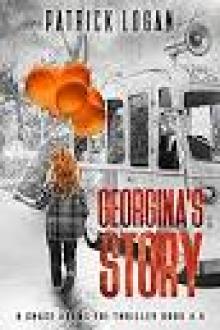 Georgina's Story
Georgina's Story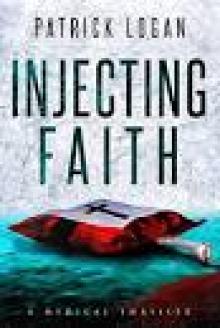 Injecting Faith
Injecting Faith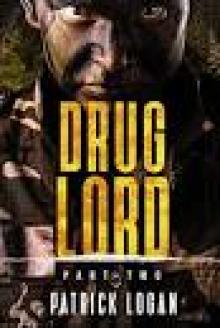 Drug Lord- Part II
Drug Lord- Part II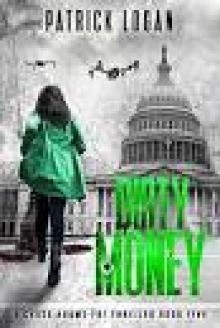 Dirty Money (A Chase Adams FBI Thriller Book 5)
Dirty Money (A Chase Adams FBI Thriller Book 5) Detective Damien Drake series Box Set 2
Detective Damien Drake series Box Set 2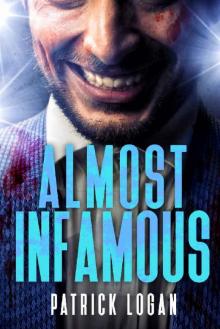 Almost Infamous (Detective Damien Drake Book 9)
Almost Infamous (Detective Damien Drake Book 9)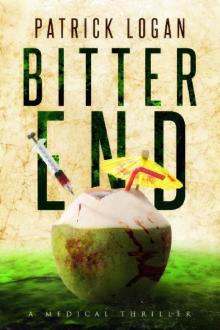 Bitter End
Bitter End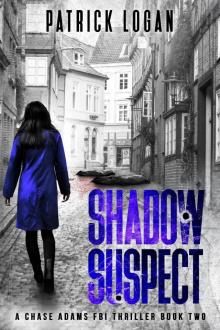 Shadow Suspect
Shadow Suspect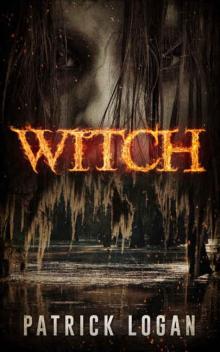 Witch
Witch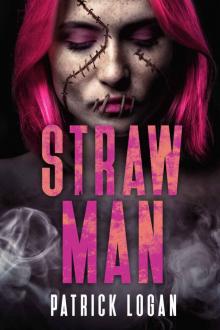 Straw Man
Straw Man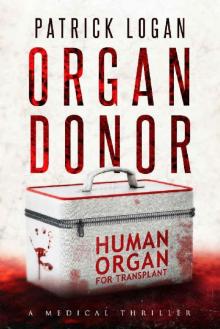 Organ Donor: A Medical Thriller (Dr. Beckett Campbell, Medical Examiner Book 1)
Organ Donor: A Medical Thriller (Dr. Beckett Campbell, Medical Examiner Book 1)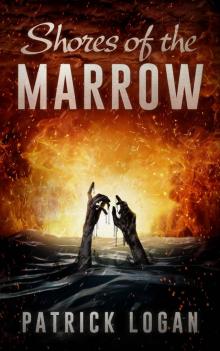 Shores of the Marrow
Shores of the Marrow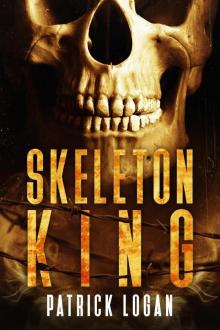 Skeleton King
Skeleton King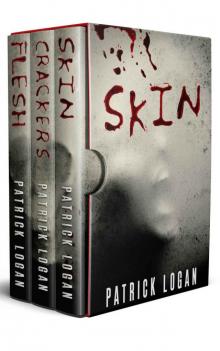 Insatiable Series Omnibus Edition (Books 1-3)
Insatiable Series Omnibus Edition (Books 1-3)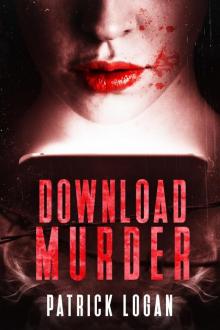 Download Murder
Download Murder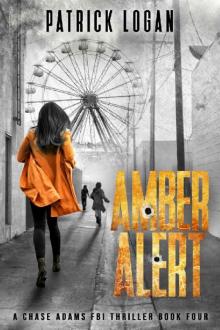 Amber Alert
Amber Alert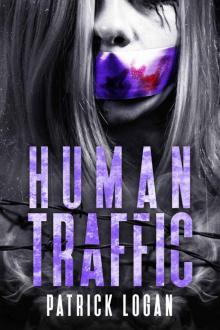 Human Traffic
Human Traffic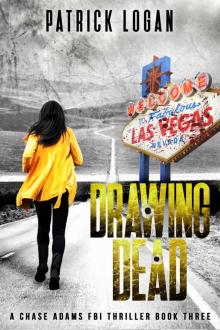 Drawing Dead (A Chase Adams FBI Thriller Book 3)
Drawing Dead (A Chase Adams FBI Thriller Book 3)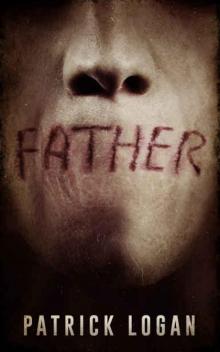 Father
Father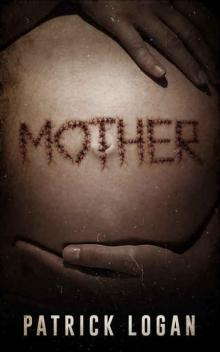 Mother
Mother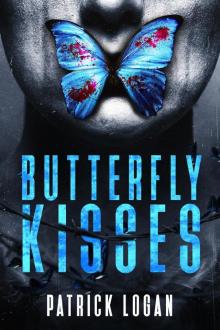 Butterfly Kisses
Butterfly Kisses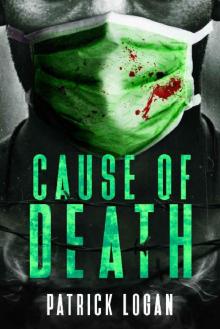 Cause of Death
Cause of Death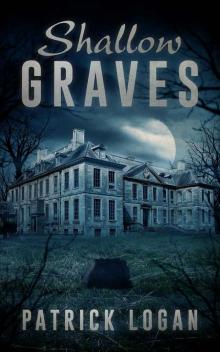 Shallow Graves (The Haunted Book 1)
Shallow Graves (The Haunted Book 1)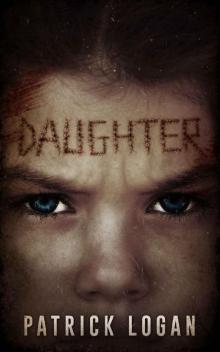 Daughter (Family Values Trilogy Book 3)
Daughter (Family Values Trilogy Book 3)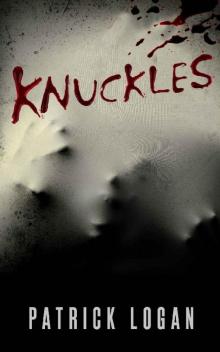 Knuckles
Knuckles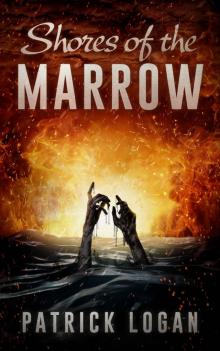 Shores of the Marrow (The Haunted Book 6)
Shores of the Marrow (The Haunted Book 6)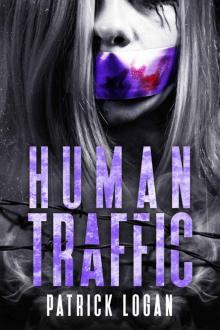 Human Traffic (Detective Damien Drake Book 5)
Human Traffic (Detective Damien Drake Book 5)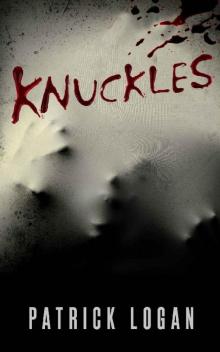 Knuckles (Insatiable Series Book 4.5)
Knuckles (Insatiable Series Book 4.5)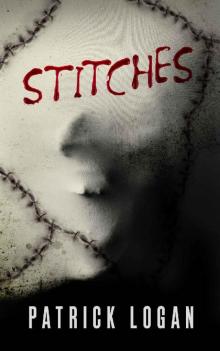 Stitches (Insatiable Series Book 5)
Stitches (Insatiable Series Book 5)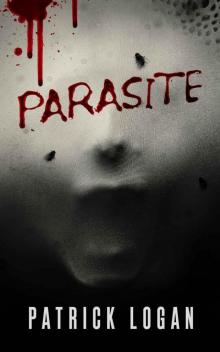 Parasite
Parasite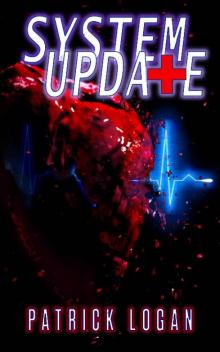 System Update
System Update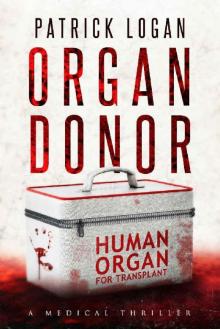 Organ Donor_A Medical Thriller
Organ Donor_A Medical Thriller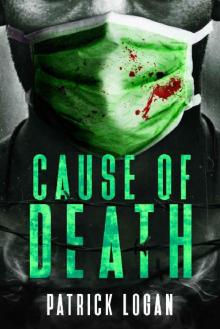 Cause of Death (Detective Damien Drake Book 2)
Cause of Death (Detective Damien Drake Book 2)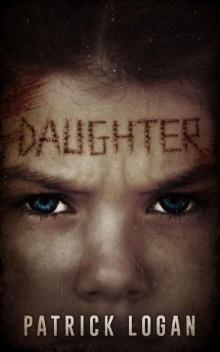 Daughter
Daughter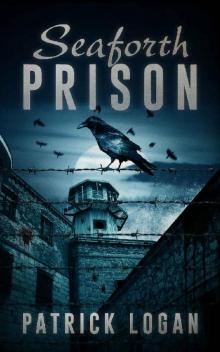 Seaforth Prison (The Haunted Book 3)
Seaforth Prison (The Haunted Book 3)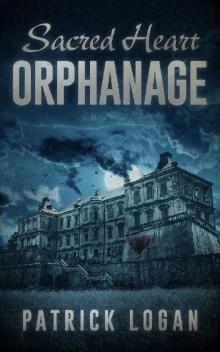 Sacred Heart Orphanage (The Haunted Book 5)
Sacred Heart Orphanage (The Haunted Book 5)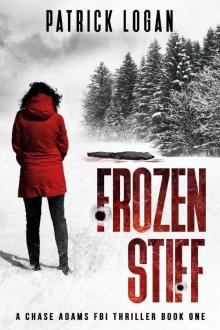 Frozen Stiff
Frozen Stiff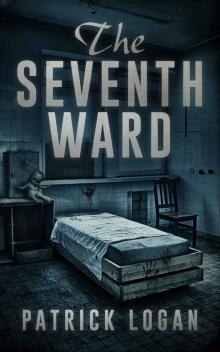 The Seventh Ward (The Haunted Book 2)
The Seventh Ward (The Haunted Book 2) Drawing Dead
Drawing Dead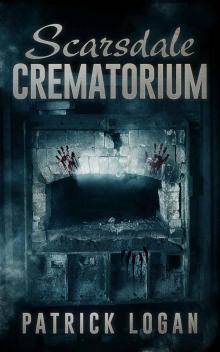 Scarsdale Crematorium (The Haunted Book 4)
Scarsdale Crematorium (The Haunted Book 4)